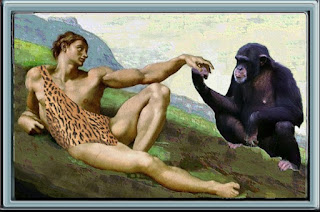The Rationality of A-Deism
A-Deism is based on logical analysis of relevant physical and psychological evidence and does not itself constitute a religion. Critical A-Deistic analysis holds that it is neither necessary nor rational to evoke supernatural pseudo-explanations for the origin of the universe (cosmology), the origin of life on Earth (abiogenesis), or biological complexity (evolution). Further, death marks the end of conscious life, so adeists have neither the expectation of eternal life nor any fear of eternal damnation.
Obviously, this definition is very much like that for atheism:
Atheism is the state either of being without theistic beliefs, or of actively disbelieving in the existence of deities. In antiquity, Epicureanism incorporated aspects of atheism, but it disappeared from the philosophy of the Greek and Roman traditions as Christianity gained influence. (en.wikipedia.org/wiki/Atheism)
Adeism excludes agnosticism, deism, and theism.
Agnosticism: the belief that the existence of God is not knowable. The word is derived from the negative ‘a’ combined with the Greek word ‘gnosis’ which means ‘knowledge.’ Hence, agnosticism is the belief that God cannot be known. (google agnosticism definitions)
Existence: despite religionist assertions to the contrary, the only existence of which humans can be certain is that which we each experience during this life on Earth combined with the physical entities and forces that can be empirically detected or deduced through the detectable.
(http://mimble-wimble.blogspot.com/2005/12/reality-truth.html)
Deism: The belief that God exists but is not involved in the world. It maintains that God created all things and set the universe in motion and is no longer involved in its operation. (www.carm.org/dictionary/dic_c-d.htm)
Deity, divinity, god, immortal: any supernatural being worshipped as controlling some part of the world or some aspect of life or who is the personification of a force. (wordnet.princeton.edu/perl/webwn)
Theism: the doctrine or belief in the existence of a God or gods.
(wordnet.princeton.edu/perl/webwn)
Religion—sometimes used interchangeably with faith or belief system—is commonly defined as belief concerning the supernatural, sacred, or divine, and the moral codes, practices and institutions associated with such belief. In its broadest sense some have defined it as the sum total of answers given to explain humankind's relationship with the universe. In the course of the development of religion, it has taken a huge number of forms in various cultures and individuals. (en.wikipedia.org/wiki/Religion)
Superstition is a set of behaviors that are related to magical thinking, whereby the practitioner believes that the future, or the outcome of certain events, can be influenced by certain specified behaviors. The idea of "good luck" and "bad luck" gives rise to many superstitions, such as the belief that it is bad luck to wear gold and silver together. (en.wikipedia.org/wiki/Superstition)
Magic or sorcery are terms referring to the influence of events and physical phenomenon through supernatural, mystical, or paranormal means. The term magic in its various translations has been used in a number of ways. From the point of view of an established religion, it has often been used as a pejorative term for the pagan rituals of competing ethnic groups, as belonging to an inferior (hence blasphemous or idolatrous) culture. The magic and religion article deals largely with this aspect. (en.wikipedia.org/wiki/Magic)
Miracle: according to many religions, a miracle is an intervention by God in the universe. (en.wikipedia.org/wiki/Miracle).
A Biblical definition of miracle is, "an event in the external world brought about by the immediate agency or the simple volition of God, operating without the use of means capable of being discerned by the senses, and designed to authenticate the divine commission of a religious teacher and the truth of his message (John 2:18; Matt. 12:38)".(www.calvarychapel.com/redbarn/terms.htm)
This blog will employ the definition used by Leibniz, "something that goes against the natural and predictable order of things.” (www.innvista.com/culture/religion/diction.htm)
Sites Elsewhere : Why Complete Materialist? :
Labels: adeism, agnosticism, atheism, cosmology, creationism, deism, religion, science, theism











